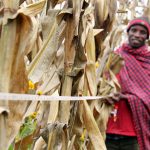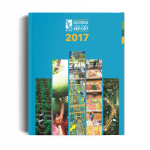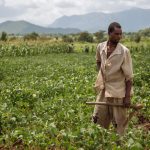[Originally posted on the CGIAR Research Program on Policies, Institutions, and Markets website.] “Agricultural (research) programs without rigorous impact evaluation tend to focus on rapid testing (and rollout) of technologies with high-probability adopters to provide swift feedback to donor constituencies. Such programs also tend to favor numeric accomplishments over a deeper understanding of complex development […]
The impact of urbanization on food systems and policy: 2017 Global Food Policy Report now out
Today, IFPRI released one of its annual flagship publications: the 2017 Global Food Policy Report, an evidence-based analysis of the latest developments in food policy across the developing world. This year's report examines how urbanization is changing food systems, health, and development. It features chapters on the importance of investing in rural-urban linkages and value chains; the […]
MaSSP Report: The state of agricultural extension and advisory services provision in Malawi
Though Malawi has made some recent progress in increasing agricultural production and economic growth as well as reducing food insecurity, undernutrition and food insecurity remain widespread with 37 percent of children under five being stunted according to the 2015/16 Demographic and Health Survey (DHS) and 6.7 million people estimated to be in need of […]
Working Paper 17: Localized public investment and agricultural performance in Malawi: An econometric approach
Using panel data econometric techniques, this paper evaluates how public expenditure influences agricultural performance at the district level in Malawi by empirically estimating localized expenditure multipliers for the districts. The results of the analysis show that public expenditures in agriculture have generally been positive, with variable impacts on agricultural growth at the district level. The […]
Monitoring Maize Prices in Malawi: A New Report Series is Launched
Fluctuations in the price of maize—Malawi’s most important staple crop—are a huge contributor to the country’s overall food security. Providing maize price information in markets throughout the country is a critical first step to understanding and improving food security in Malawi. The Monthly Maize Market Report was developed by researchers at IFPRI-Malawi, with the main […]
- « Previous Page
- 1
- …
- 56
- 57
- 58
- 59
- 60
- …
- 69
- Next Page »




